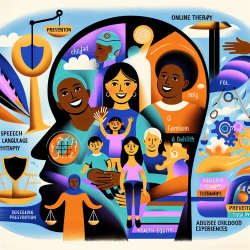Practitioners working with children with disabilities in resource-limited settings often face unique challenges. The study titled Needs assessment of caregivers of children with disabilities in resource-limited settings offers valuable insights that can help practitioners enhance their skills and provide better support. This blog explores the key findings and suggests practical steps for implementation.
Understanding Caregiver Needs
The study identified five primary domains of caregiver needs:
- Health and Medical
- Welfare
- Educational
- Social
- Informational
Health and Medical Needs
Caregivers expressed a need for familiar and accessible medical services, referral to specialists, appropriate rehabilitation, nutritional services, psychological support, genetic counseling, and advice on traditional medicine. Practitioners should focus on:
- Providing clear communication and empathetic listening.
- Offering referrals and coordinating with specialists when necessary.
- Supporting caregivers with rehabilitation techniques and nutritional advice.
Welfare Needs
Financial support and respite from the care burden were significant concerns. Practitioners can help by:
- Assisting caregivers in navigating welfare systems and accessing financial aid.
- Encouraging community support networks to provide respite care.
Educational Needs
Caregivers sought inclusive education, special education, and vocational training for their children. Practitioners should:
- Advocate for inclusive education and appropriate special education resources.
- Facilitate vocational training opportunities to enhance independence.
Social Needs
Support from the community and maintaining privacy were critical. Practitioners can:
- Promote community awareness and support initiatives.
- Encourage peer support groups for shared experiences and advice.
Informational Needs
Caregivers needed easy access to relevant information. Practitioners should:
- Provide comprehensive and continuous information about services and care techniques.
- Utilize digital platforms to disseminate information effectively.
Implementing the Findings
Practitioners can use the insights from this study to tailor their approaches, ensuring they meet the diverse needs of caregivers. By focusing on communication, coordination, advocacy, and support, practitioners can significantly improve the outcomes for children with disabilities in resource-limited settings.
To read the original research paper, please follow this link: Needs assessment of caregivers of children with disabilities in resource-limited settings.










